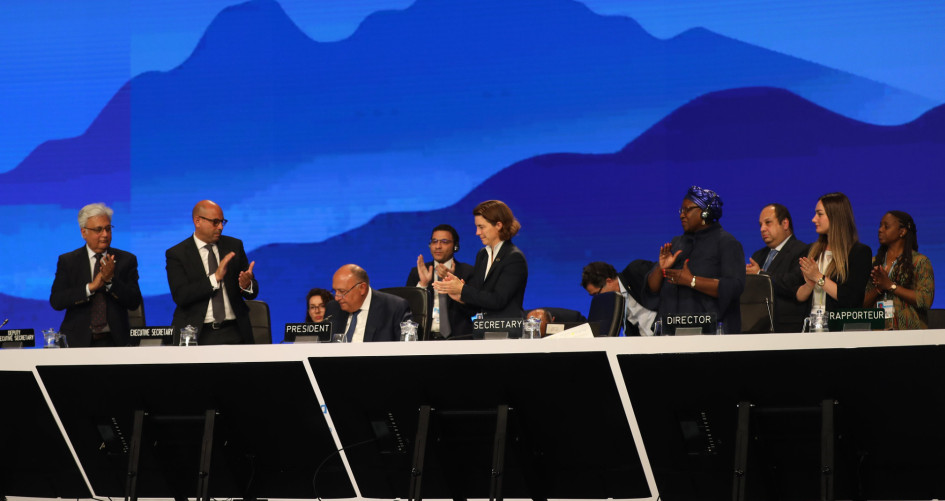COP27 delivers breakthrough agreement on climate funding
The Caribbean’s appeal and reminder to help vulnerable countries mitigate the effects of climate change has been heard.
This year’s U.N. summit on climate change delivered a promise to create a climate fund on Sunday, a hard-fought deal made by countries despite the lack of ambition to address the emissions causing them.
In a report by Reuters, delegates were “worn out” after the intense overnight negotiations on the historic deal that “marked a diplomatic coup for small islands and other vulnerable nations in winning over the 27-nation European Union and the United States,” countries that had been evading the idea because of the fund might subject them to “legal liability for historic emissions.”
The breakthrough agreement emphasized on the “loss and damage” funding for vulnerable countries hit hard by climate disasters.
“This outcome moves us forward,” said Simon Stiell, UN Climate Change Executive Secretary. “We have determined a way forward on a decades-long conversation on funding for loss and damage – deliberating over how we address the impacts on communities whose lives and livelihoods have been ruined by the very worst impacts of climate change.”
Before the COP27 in Egypt, Caribbean leaders gathered in Nassau, The Bahamas to discuss about climate change and how it impacts small countries such as those in the region that have always been visited by strong typhoons and hurricanes.
In a speech last August, Bahamian PM Philip Davis called on his fellow state leaders to make their voices heard at the climate summit.
“If we advance our interests merely as individual Small Island Developing States, our voices will be dispersed, unable to be heard above louder, wealthier, carbon-producing interests,” he said as reported by Reuters.
The “loss and damage” funding deal was “widely lauded as a triumph” for responding to the devastating impact that global warming is already having on vulnerable countries, Reuters reported, but the summit failed to address the issues on the use of fossil fuel.
Some islands in the Caribbean, such as Dominica and Saint Vincent & the Grenadines, are switching to renewable energy.
Dominica leads this pack according to U.N.’s ECLAC 2016 report, with renewables accounting for 28 per cent of electricity generation. At present, the country is building its geothermal plant to provide power the entire island.
Dominica hopes to become the world’s first climate-resilient nation, and several projects have been underway to meet these goals, either funded by international organizations and countries, or the Citizenship by Investment (CBI) programme of the country.
The island’s Housing Revolution Programme, for example, has provided more than 2,000 Dominican families with climate-resilient houses and continues to do so. Its government has entrusted MMC Development Ltd., the developing arm of UAE-based company Montreal Management Consultants to oversee the remaining eight residential projects in the island, along with infrastructure projects on health care, transportation, and education.



